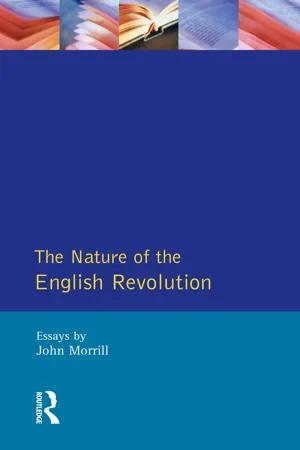History
Charles I
Charles I was the King of England, Scotland, and Ireland from 1625 until his execution in 1649. His reign was marked by conflicts with Parliament over issues of taxation and religion, ultimately leading to the English Civil War. Charles's refusal to compromise with Parliament led to his trial and subsequent execution, making him the only English monarch to be tried and executed.
Written by Perlego with AI-assistance
Related key terms
2 Key excerpts on "Charles I"
- eBook - ePub
A Short History of Early Modern England
British Literature in Context
- Peter C. Herman(Author)
- 2011(Publication Date)
- Wiley-Blackwell(Publisher)
7 Charles I (1625–42): From Accession to the Beginning of the Civil WarsOn the one hand, the shift from King James to his son, King Charles I, appears seamless, without any of the anxieties or sudden alterations in religion accompanying the previous monarchic transitions. Unlike his father, Charles was a known quantity in England, as he had started attending parliamentary sessions and participating in government in the early 1620s. Legally, Charles I became ruler of England, Scotland and Ireland the moment James died on March 28, 1625, but by that point, he was king in all but name. Indeed, the coronation ceremony in 1626 may have seemed a mere formality. The transition, however, brought about a number of important alterations. First, Charles, a fastidious man who loved order and hierarchy, had a very different personality than his father, and the style and culture of the court changed accordingly. Deeply impressed by the formality of the Spanish court, even before his father’s funeral he sought to import that sort of conduct into England. According to the Venetian ambassador:Figure 7.1King Charles I after Sir Anthony Van Dyck, c. 1635–36. © National Portrait Gallery, London.[Th]e king observes a rule of great decorum. The nobles do not enter his apartments in confusion as heretofore, but each rank has its appointed place … The king has also drawn up rules for himself, dividing the day from his very early rising, for prayers, exercises, audiences, business, eating and sleeping. It is said that he will set apart a day for public audience and he does not wish anyone to be introduced to him unless sent for.1Charles also got rid of the louche atmosphere and sleazy behavior characterizing the Jacobean court. “The face of the court,” Lucy Hutchinson recalled, “was much changed in the king, for King Charles was temperate and chaste and serious, so that the fools and bawds, mimics and catamites of the former court grew out of fashion.”2 - eBook - ePub
- John Morrill(Author)
- 2014(Publication Date)
- Routledge(Publisher)
Most historians would now agree that the 'activists' (those who believed that there were issues worth fighting for) were drawn on each side in similar numbers from each social group. (It is an important corollary to this that men of all social groups had a good deal of freedom of choice, even though many exercised this freedom to take the line of least resistance.) There was popular royalism as well as popular parliamentarianism 18. V Those who wished to criticize Charles or his government had to use euphemisms or circumlocutions. Two phrases newly coined during the 1620s and 1630s sum up the anxieties of the period: the first was 'new counsels' 19 and the other was 'the piety of the times'. 20 Both are mild terms concealing a sense of menace to civil and religious liberties. James I often regretted that his predecessors had (voluntarily but irrevocably) bound themselves to act in certain ways but he did see himself as so bound. 21 Charles I did not hold himself to be so bound. One of his ministers, speaking for the young king in 1626, advised Parliament that Move not His Majesty with trenching upon his prerogatives lest you bring him out of love with his Parliaments. . . . In all Christian kingdoms. . . monarchs. . . seeing the turbulent spirit of their parliaments, at length. . . began to stand upon their prerogatives, and at last overthrew the parliaments throughout Christendom except here only with us. 22 Charles could never accept that men could sincerely hold principled opinions different from his own. Those who did not obey his orders were, necessarily, unprincipled and factious. Throughout his life he attributed obstruction to the wilful, unscrupulous and sectional interests of a minority. He saw his early Parliament as a flock of sheep blindly following some wily wolves. 23 If he was unable to gain that to which he was entitled by following 'constitutional' courses, he believed he had a residual right to fall back on a naked authoritarianism
Learn about this page
Index pages curate the most relevant extracts from our library of academic textbooks. They’ve been created using an in-house natural language model (NLM), each adding context and meaning to key research topics.

